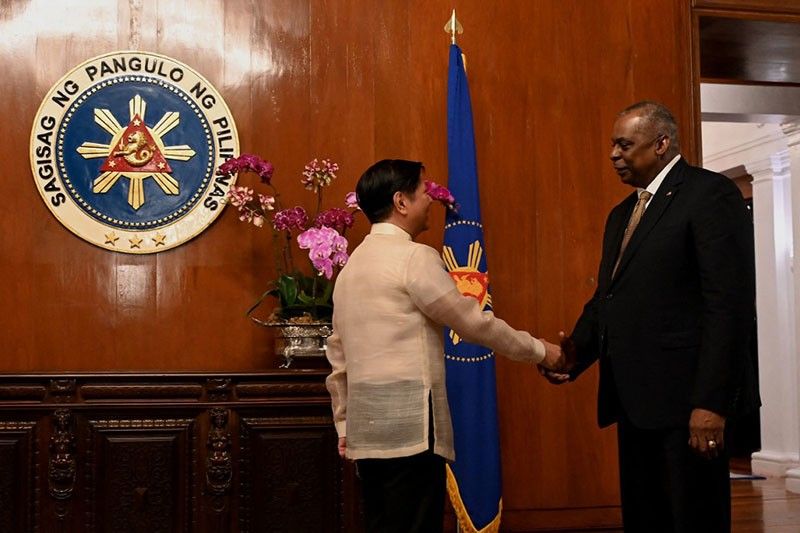Remaining independent in confronting geopolitical challenges in Indo-Pacific

The Philippines and Indo-Pacific states are confronted by geopolitical challenges that range from traditional, non-traditional and evolving security threats.
The collective concern to manage these security challenges pushes states to cooperate in multilateral, minilateral, and bilateral approaches.
The administration of President Ferdinand Marcos Jr. is expected to maximize the country’s diplomatic relations while remaining independent and free from external pressure in the exercise of its foreign and security policies. This is tested in the latest diplomatic engagements of the administration.
The Department of National Defense (DND) recently announced the designation of four new sites under the Enhanced Defense Cooperation Agreement (EDCA) and the continuation of joint sea patrols with the United States.
The agreement, reached during the visit of US Defense Secretary Lloyd Austin III to the Philippines, was well received by members of the Armed Forces of the Philippines (AFP) and the Senate. This strategic move signals a strengthening of relations between the Philippines and the United States, with Secretary Austin elevating the alliance to the level of a "family."
In response to this, China did not welcome the latest initiative of the United States in the Philippines, warning the latter to avoid being “taken advantage of and dragged into troubled waters." This is only one of the many instances of strategic competition between the two major states, which are central to the geopolitics of the Indo-Pacific.
The recent roundtable discussion hosted by the Stratbase ADR Institute entitled "The Strategic Position of the Philippines in the Geopolitics of the Indo-Pacific" highlighted trust issues among states that affect the region's peace and stability.
Richard McGregor, senior fellow for East Asia of the Lowy Institute, explained that amidst the strategic competition between the two major states, it is quite difficult to predict that China will have the same regional role and influence that the United States currently has. This is due to Beijing’s current disputes with states in the region, which make it less trustworthy. Given these territorial and trust issues, according to McGregor, maritime Southeast Asia becomes “highly unstable,” placing the region in an even more difficult period.
On the West Philippine Sea, RADM Rommel Jude Ong (Ret), professor of Praxis of the Ateneo School of Government, suggested the conduct of unilateral or joint patrols with allies and partners to manage security challenges.
Recognizing the limitations in the country's resources, he also advised that the Philippines must work with the United States, Australia, and other security partners to implement a maritime security strategy. He said that this would convey a message of solidarity among like-minded states.
On the other hand, Richard Heydarian, non-resident fellow of the Stratbase ADR Institute, suggested stepping up efforts with Australia, noting that the two countries' relations are promising but largely unexplored.
He outlined how the status of Visiting Forces Agreement between the Philippines and Australia has offered both nations a powerful counter-terrorism and conflict resolution mechanism in the last ten years.
In these uncertain and difficult times, it is critical we keep our security policies responsive and strategic while we strengthen ties with trusted states.
In a national survey conducted by Pulse Asia Research Inc. and commissioned by the Stratbase ADR Institute from November 27 to Dec. 1, 2022, 84% of Filipinos believe that the Marcos administration should work with the United States to strengthen security cooperation to defend our national sovereignty in the West Philippine Sea. Filipinos also ranked Japan, Australia, the United Kingdom and South Korea as their trusted countries.
Furthermore, strengthening the military capability of the Philippines, especially the Philippine Navy and the Philippine Coast Guard, and conducting joint maritime patrols and military exercises with allied countries, are effective means to address issues in the West Philippine Sea, according to 80% of the respondents.
Given this data and the current geopolitical developments in the region, the implementation of Philippine foreign and security policies must be consistently anchored on national interests. This is especially crucial when dealing with major players in the region.
Marcos Jr.'s administration has been consistent in balancing relations with the two major powers, beginning with a state visit to China at the start of the year and continuing with official engagements with the United States, including the 10th Bilateral Strategic Dialogue and Austin's visit this year. Diplomatic engagements with one state should not deter relations with another.
The Marcos administration is expected to continue elevating bilateral ties with both the US and China while also working with allies and partners such as Japan and Australia. For example, strategic initiatives in the pipeline include the Balikatan military exercises with the United States in Ilocos Norte in April 2023, which may be participated in by Japanese and Australian forces, as well as President Marcos' visit to Tokyo this week.
The state visit to Japan from February 8 to 12 is expected to deliver infrastructure initiatives through a US$ 3 million loan program. Other bilateral agreements to be signed are related to defense, agriculture, and information and communications and disaster relief cooperation.
Marcos is scheduled to meet with Japan Prime Minister Fumio Kishida, whom he first met in September 2022 in the United States. Moreover, the president will have an audience with Japanese Emperor Naruhito and Empress Masako.
The current administration has so far kept diplomatic relations warm through various commitments on areas of concern. Its exercise of an independent foreign policy is seen in its ability to establish a communication mechanism with China while also being free to conduct defense initiatives with like-minded states such as the United States, Australia and Japan.
In confronting the geopolitical challenges of the Indo-Pacific, Philippine foreign policy must remain independent from external pressure and committed to national interests. Doing so allows the country to focus on its security priorities while contributing to regional peace and stability.
Alynna Carlos is a program manager at the think tank Stratbase ADR Institute.
- Latest























